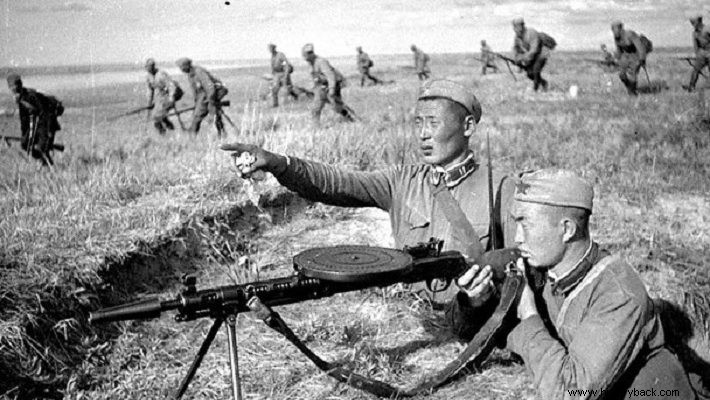
There are times when fortune plays very bad tricks on a person. This could also be argued by Korean Yank Kyung Yong, who, from 1938 to 1944, found himself fighting in three different armies, the Japanese, the Soviet and the German.
In 1938 Korea was under Japanese occupation. The Japanese forcibly conscripted young Koreans into the army to fight for them in China and Manchuria. The then 18-year-old Yang, who was going to Seoul to study, was one of those who joined the Imperial Japanese Army. The Japanese implemented a program of "reformation" of Koreans, with the intention of turning them into loyal Japanese subjects, by force.
In 1939, Young, together with his regiment, found himself at Halkin Gol, on the Mongolian-Manchurian border, fighting against the Soviets. Soviet tanks decimated his regiment. He himself was captured, along with other compatriots.
Detention conditions were inhumane and many of the prisoners, whom the Soviets regarded as "Japanese fascists", died. This was followed by the German invasion of the Soviet Union. In 1942 the Germans were on the brink of Stalingrad and nothing seemed capable of stopping them. Soviet losses were enormous and there was a need to throw every able-bodied man into the fight.
Then the Soviets remembered the Korean prisoners, who, overnight, from "Japanese fascists", turned into "fighting children of the Korean people". The prisoners joined the Red Army and threw themselves into battle against the Germans.
Yang fought a year in the ranks of the Red Army. At the beginning of 1943, however, he was captured again, this time by the Germans, in Kharkiv. In 1944 the Germans, having also suffered terrible losses, began to form garrison battalions from Asian prisoners, to which they assigned the guarding of the French coast, where they awaited the Allied landing.
The landing did take place on June 6, 1944 and Young found himself this time fighting the Americans. In no mood for battle, however, at the first opportunity he surrendered to the American paratroopers, who were approaching, on the Cotantin peninsula.
Young remained for a time in a British POW camp. After the war he immigrated to the USA, where he spent the rest of his life, peacefully, until his death in 1992, in Illinois.
